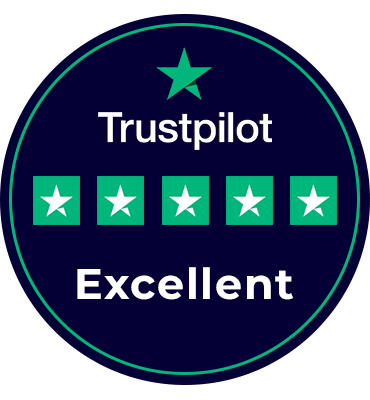Shopify eCommerce Website Design in London – Build Your Online Store | Fulminous Software
Shyam Singh
Last Updated on: 17 November 2025
Introduction — Why Shopify E-commerce Development London Matters
London is one of the world’s most competitive e-commerce markets. From boutique fashion labels in Shoreditch to established retail brands across the West End, businesses need robust, reliable online stores that convert visitors into customers. Shopify e-commerce development London has become the go-to solution for many businesses because Shopify combines a user-friendly admin, a fast and secure storefront, built-in payments and checkout, and a massive ecosystem of apps and integrations.
This guide explains why Shopify is a smart choice for London businesses, what a professional development process looks like, how much it typically costs, the must-have features for a London audience, and how Fulminous Software can help you build, launch and grow your Shopify store.
Why Choose Shopify for Your London E-commerce Business?
There are many e-commerce platforms — Magento, WooCommerce, BigCommerce, and custom solutions — but Shopify stands out for several reasons that matter for businesses in London:
- Speed to market: Shopify lets you go from idea to live store faster than most platforms. This is vital in a fast-moving marketplace.
- Reliability & Performance: Shopify’s hosting and CDN are built for traffic spikes around promotions, events, and seasonal sales.
- Security & Compliance: Shopify maintains PCI compliance, and takes care of security patches so you can focus on selling.
- Rich app ecosystem: From inventory and fulfillment to loyalty and analytics, Shopify’s app marketplace has mature solutions for UK businesses.
- Local payments & checkout: Shopify supports multiple payment gateways and local options used in the UK and Europe, including Apple Pay, Google Pay, PayPal, and Stripe.
- Scalability: You can start on Shopify Basic and upgrade to Shopify Plus as your business grows.
What Shopify E-commerce Development London Includes
When hiring a Shopify e-commerce development agency in London or a remote specialist such as Fulminous Software, a standard project typically covers:
- Discovery & strategy: Business goals, audience, product mix, competitive analysis, shipping and tax strategy for the UK and EU.
- Design & UX: Wireframes, responsive UI, product pages built to convert, checkout optimization, and accessibility considerations.
- Theme development or customization: Custom Shopify theme or highly-tailored existing theme to match brand identity.
- App integration: Inventory management, headless CMS, reviews, subscriptions, loyalty programs, analytics, and accounting integrations (Xero, QuickBooks).
- Payment and checkout setup: Local payment options, multi-currency support, and secure checkout setup.
- Shipping & tax: Integration with UK carriers, fulfillment rules, shipping calculators, and VAT settings.
- Migration & data import: Product import, customer import, order history migration from legacy stores.
- SEO & performance: On-page SEO, structured data, fast page load optimization, image compression and critical CSS.
- Testing & QA: Cross-browser and device testing, conversion funnel checks, payment and checkout testing.
- Launch & training: Launch plan, go-live checklist, and admin training for your team.
- Ongoing maintenance & growth: Support, feature development, CRO, promotions, and seasonal campaigns.
Key Shopify Features UK Businesses Need
London businesses have specific requirements: high expectations for speed, local shipping complexity, strong branding expectations, and strict regulatory requirements. Below are features to prioritize in Shopify e-commerce development for the London market:
- Fast, mobile-first design: The majority of shoppers use mobile devices. Prioritize responsive design and fast interactions.
- Local delivery & click & collect: Allow shoppers to choose local delivery, same-day delivery, or store pickup where relevant.
- Multi-currency & international selling: If you sell across the EU or globally, add multi-currency pricing and international shipping rules.
- VAT handling: Configure VAT correctly for UK domestic sales and cross-border EU sales post-Brexit.
- Returns & refunds: Clear returns flow and partial refunds that integrate with Shopify orders.
- Subscriptions & recurring billing: For consumables and membership businesses, subscription flows deliver predictable revenue.
- Headless commerce (optional): For complex omnichannel needs, decoupling front end from Shopify can provide ultimate flexibility.
Design, UX & Conversion — What Converts in London
Design is not decoration — it’s a conversion engine. A few design and UX principles that consistently work for London shoppers:
- Clear value proposition: Above the fold messaging explaining why the product is great and why shoppers should buy.
- High-quality photography: Multiple product images, zoom, 360 views, and lifestyle photos that reflect local tastes and seasonality.
- Fast product discovery: Faceted search, logical categories, filters for size, colour, price, availability.
- Trust signals: Reviews, secure checkout badges, clear delivery & returns info, local contact details and social proof.
- Optimized checkout: Minimize steps. Offer guest checkout, local payment methods, and autofill support.
- Accessibility: Ensure compliance with WCAG basics (contrast, keyboard navigation, alt text) — many organisations require accessibility in the UK.
Ready to launch your Shopify store in London?
Hire certified Shopify developers from Fulminous Software — fast onboarding, local UK expertise, and scalable Shopify solutions. Book a free 30-minute consultation to discuss your project.
Book a Free ConsultationShopify Development Process — Step by Step
A reliable development process reduces risk and ensures clarity. Here’s a practical, repeatable flow used by professional Shopify e-commerce development teams:
1. Discovery & Requirements
We start with a deep discovery workshop: target customers, user journeys, product catalogue complexity, expected traffic, integrations (ERP, PIM, third-party logistics), discount and promotion logic, legal and tax constraints. Clear acceptance criteria are defined at the outset.
2. UX & Wireframing
Wireframes map the primary flows — home, category, product, cart and checkout, account area. This stage focuses on information hierarchy and conversion paths without visual styling distractions.
3. Visual Design
Design creates the brand language — fonts, colours, imagery, and the final layouts. Designs are responsive by default and include components for product cards, promotional banners, and microsites if required.
4. Theme Development & App Integration
Front-end developers build the Shopify theme (Liquid templates, JavaScript and CSS) and integrate necessary apps and APIs. For high-performance stores, we optimize critical rendering path, lazy-load assets and use server-side caching where possible.
5. Data Migration & Import
We migrate products, customers and orders, mapping legacy fields to Shopify objects, cleaning data and validating after import. This stage ensures a smooth transition with minimal downtime.
6. Testing & QA
Comprehensive QA covers browser/device compatibility, checkout flows, payment gateway tests, shipping calculations, VAT scenarios, coupon logic, and accessibility checks.
7. Launch & Monitoring
Launch is planned for low traffic periods with a rollback strategy. Post-launch monitoring checks orders, analytics, and error logs for 48–72 hours to catch any issues quickly.
8. Growth & Optimization
After launch, the focus moves to conversion rate optimization (CRO), A/B testing, merchandising, SEO, and paid media integration to grow traffic and revenue.
Technical Stack & Integrations for London Shopify Stores
Choosing the right technical stack and integrations ensures operational efficiency and a smooth customer experience.
- Payments: Shopify Payments, Stripe, PayPal, Klarna, Apple Pay, Google Pay.
- Shipping & Fulfillment: Royal Mail, DPD, Evri, Hermes, local same-day couriers, and fulfillment partners (e.g., Shopify Fulfillment Network).
- ERP & Accounting: Xero, QuickBooks, Sage, or custom ERP integrations.
- Inventory & PIM: TradeGecko, Salsify, or custom PIM for large catalogs.
- Analytics & BI: Google Analytics 4, Shopify Analytics, Looker Studio and server-side tracking for accurate attribution.
- Marketing & CRM: Klaviyo, Mailchimp, HubSpot, and integration with customer data platforms (CDP).
- Reviews & UGC: Yotpo, Judge.me, Loox for social proof and SEO benefits.
Costs — How Much Does Shopify E-commerce Development London Cost?
Project budgets vary widely based on complexity. The following ranges offer a realistic expectation for London businesses:
- Basic Shopify setup (Template + small customizations): £1,500–£5,000 — suitable for small boutiques or MVP stores.
- Mid-range custom store (custom theme, multiple integrations): £5,000–£25,000 — typical for growing retailers with several integrations and custom UX.
- Advanced / Shopify Plus (enterprise features, headless, multi-region): £25,000–£150,000+ — for high volume brands requiring bespoke architecture and extensive integrations.
Ongoing costs include hosting (Shopify), apps, maintenance, marketing and possibly development retainer for feature work and optimizations.
SEO & Content Strategy for London Stores
SEO is essential for organic traffic and discoverability. For a London audience, focus on a localised SEO approach:
- Local landing pages: Create pages for boroughs or neighbourhoods you target (e.g., “Shopify store London”, “Same day delivery in Camden”).
- Structured data: Product schema, breadcrumb schema and FAQ schema to improve search listings.
- Content marketing: Product guides, lookbooks, and city-focused campaigns to attract local searchers.
- Site speed: Improve Core Web Vitals to boost rankings and conversion on mobile.
Case Study Examples (Hypothetical Illustrations)
Below are short, illustrative case studies to show what Shopify e-commerce development can deliver for London businesses.
Case Study 1 — Boutique Fashion Label, Shoreditch
A small fashion label moved from a legacy platform to Shopify with a custom theme and native checkout integration. Result: 45% increase in mobile conversion, simplified inventory management, and same-day local delivery option integrated with a local courier.
Case Study 2 — Health & Beauty Brand, West London
A mid-sized brand implemented subscription billing for consumables using Shopify subscriptions and integrated Klaviyo for lifecycle email marketing. Result: 30% increase in LTV and predictable monthly revenue from repeat customers.
Case Study 3 — High-volume Retailer (Omnichannel)
An established retailer used Shopify Plus with headless front-end to power both their web store and digital kiosks in stores. Result: unified inventory, faster site performance, and a consistent in-store/online experience.
How to Choose a Shopify E-commerce Development Agency in London
Picking the right agency is as important as picking the right platform. Consider these selection criteria:
- Proven portfolio: Look for live stores similar in industry and scale.
- Technical depth: Do they handle complex integrations, headless setups, and performance optimization?
- SEO & CRO expertise: They should design with conversion and search visibility in mind.
- Post-launch support: Are there retainer options, SLAs, and rapid response for issues?
- Local UK knowledge: Familiarity with UK shipping, VAT, and consumer expectations.
- Clear process and communication: Regular milestones, testing, and transparency in deliverables and costs.
Fulminous Software offers London clients a end-to-end Shopify development service with UK-facing expertise, fast onboarding, and flexible hiring models to fit businesses of all sizes.
Tips to Maximize Sales on Shopify in London
- Offer multiple local delivery options: Same-day, next-day and click & collect increase conversions for urban buyers.
- Use local imagery and copy: Tailor imagery and tone to London audiences and seasonal events (Carnaby Street promotions, Christmas markets).
- Promote trust signals: Clear returns policy, live chat, and local phone support build buyer confidence.
- Leverage social channels: Instagram Shopping, TikTok and local influencer collaborations drive discovery.
- Run targeted PPC: Geo-targeted Google ads and local shopping campaigns can boost short-term revenue while SEO matures.
Common Questions About Shopify E-commerce Development London
Below are practical answers to frequently asked implementation questions:
Can I keep my existing domain and email when moving to Shopify?
Yes — you can point your domain to Shopify and keep your email provider. Fulminous Software will assist with DNS changes and migration to ensure no email disruption.
Will I lose SEO when migrating to Shopify?
Not if the migration is planned properly. Key steps include preserving URLs or setting up 301 redirects, migrating meta titles/descriptions, and ensuring sitemap and structured data are in place.
Does Shopify support international selling?
Yes. Shopify supports multiple currencies, country-specific catalogues and shipping rules. Advanced cross-border setups may require Shopify Markets or Plus features.
Frequently Asked Questions (FAQs)
Q1. How long does it take to build a Shopify store?
A: A basic Shopify store can be built in 2–4 weeks. A custom mid-level store typically takes 6–12 weeks. Complex enterprise projects can take 3–6 months depending on integrations and custom work.
Q2. Can I sell both online and in a physical London store with Shopify?
A: Yes — Shopify supports omnichannel retail, POS integrations, and unified inventory management.
Q3. How much does Shopify cost monthly?
A: Shopify’s subscription plans (Basic, Shopify, Advanced, Plus) range from monthly fees plus transaction fees (if not using Shopify Payments). Additionally, app subscriptions and development/maintenance fees are separate.
Q4. Do you offer Shopify Plus development?
A: Yes. Fulminous Software provides Shopify Plus development for high-volume merchants looking for advanced features such as multi-store setups, wholesale channels, and headless commerce.
Ready to Get Started?
If you’re in London and ready to build a Shopify store that converts, Fulminous Software can help. We combine local market knowledge with global technical expertise to deliver Shopify stores that drive revenue. Contact us for a free consultation and project estimate.

 Verified
Expert in Software & Web App Engineering
Verified
Expert in Software & Web App Engineering
I am Shyam Singh, Founder of Fulminous Software Private Limited, headquartered in London, UK. We are a leading software design and development company with a global presence in the USA, Australia, the UK, and Europe. At Fulminous, we specialize in creating custom web applications, e-commerce platforms, and ERP systems tailored to diverse industries. My mission is to empower businesses by delivering innovative solutions and sharing insights that help them grow in the digital era.
Partner with Top-Notch Web Application Development Company!
Discuss your Custom Application Requirements on info@fulminoussoftware.com or call us on +1-903 488 7170.
15 Days Risk-Free Trial

